What is the government afraid of?
Ecuador’s government is freezing the bank accounts of Indigenous organizations and human rights defenders, as it rolls back human rights, collective rights and the Rights of Nature across the country
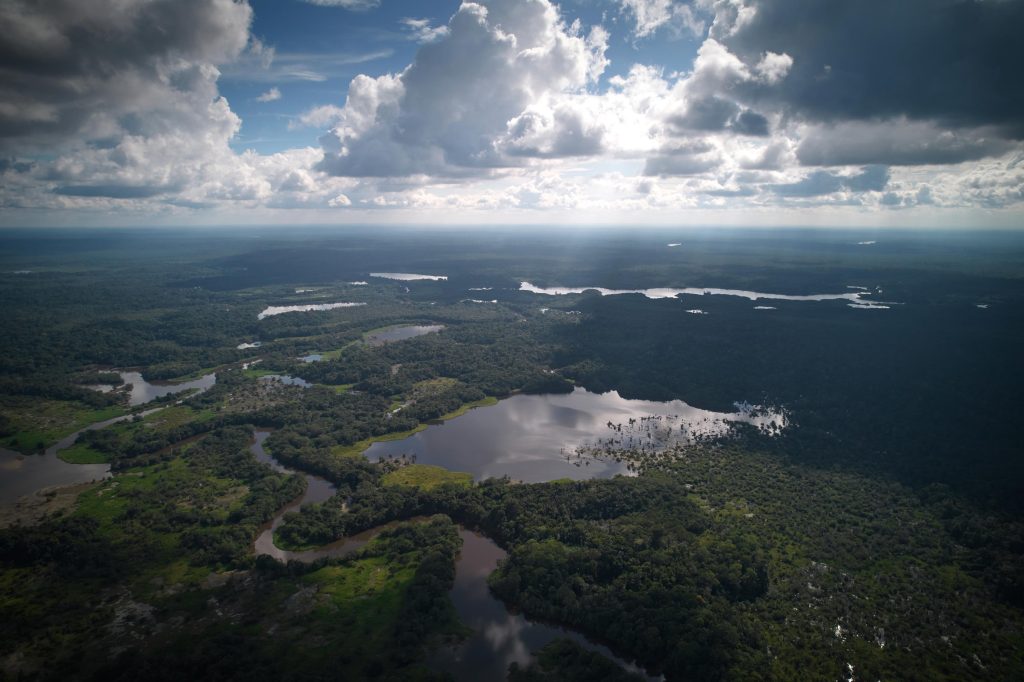
For over five hundred years, Indigenous Nations in the Amazon Rainforest have been resisting threats to their lives. From colonization, to enslavement, to mining, oil drilling, industrial agriculture, and palm plantations, Indigenous Peoples have faced a constant onslaught of outsiders who see their territories, their homes, and their lives as inconveniences on the path to “progress” and prosperity.
So, ten years ago, members of four Nations in the upper Amazon of Ecuador came together to form the Ceibo Alliance and resist together. The A’i Cofán, Siona, Siekopai, and Waorani Peoples had witnessed half a century of contamination and devastation caused by oil drilling, backed by the government and corporations. The alliance had a simple yet powerful plan: Put legal and practical resources into the hands of Indigenous communities to protect their lands and to build big dreams with their people.
The foundation of Ceibo Alliance is built on community-based work, within and with Indigenous communities across the Upper Amazon. Their work is pioneering and takes a holistic approach to the protection of Indigenous territories and cultural survival. The alliance has created rainwater harvesting systems for thousands of families and generated solar energy for hundreds more. It has supported community entrepreneurship as well as Indigenous community-led education models for cultural transmission and recovery. It trains Indigenous guards and human rights defenders as well as communicators to help Indigenous media grow and thrive. And Ceibo’s empowerment initiatives for women are creating effective, innovative, and powerful women leaders.
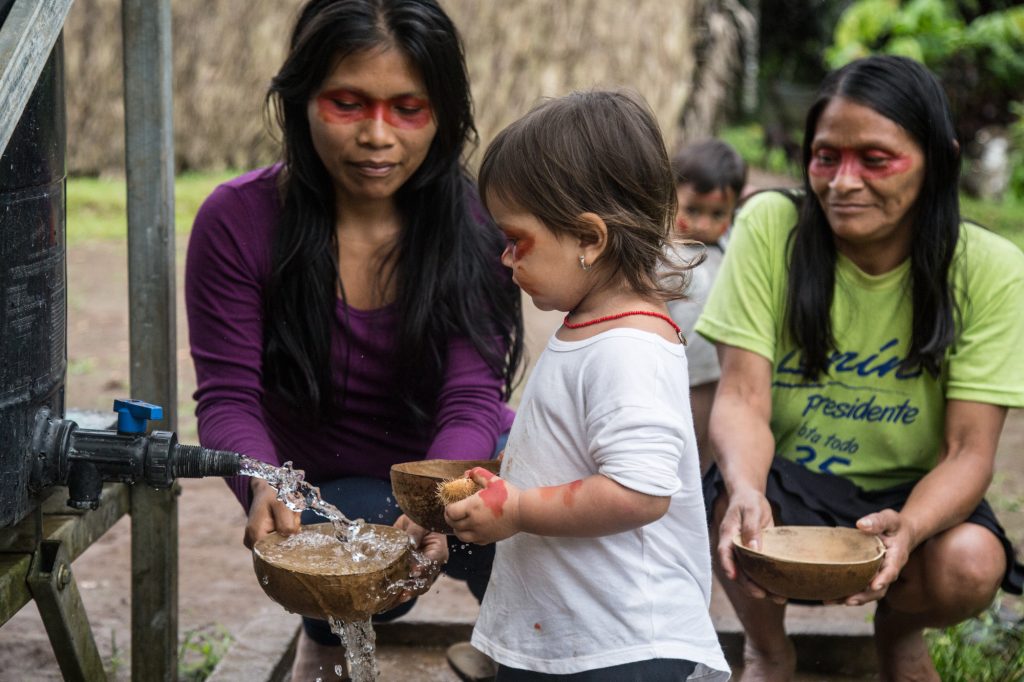
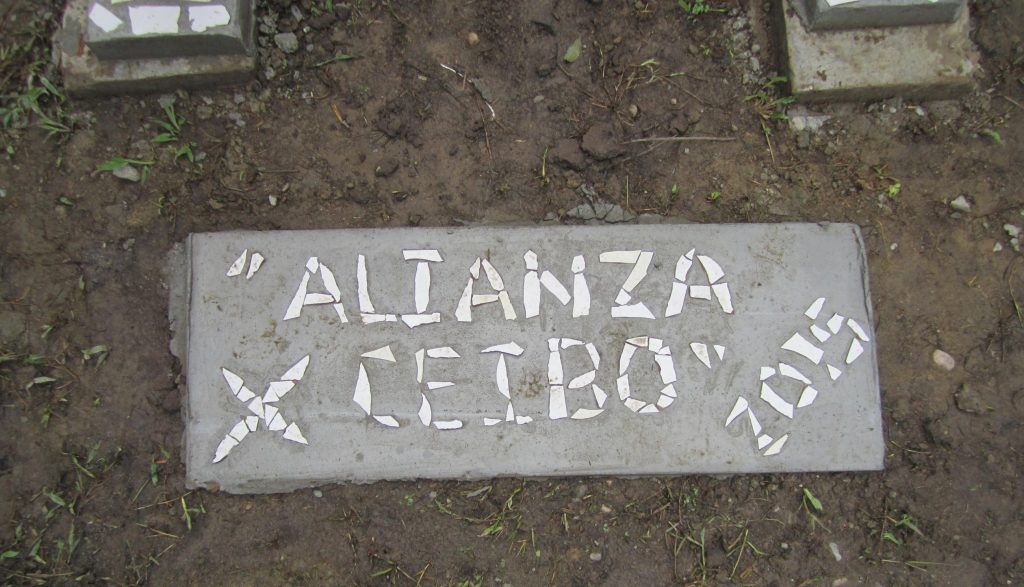

Ceibo has also adopted new technologies to map and monitor their territories, and they have developed and implemented legal strategies that led to historic victories against industrial interests. The Waorani won against Big Oil, and the A’i Cofán of Sinangoe successfully repelled the advance of mining projects without previous consultation in their territory.
Through these victories and because of the broad range of initiatives they’ve implemented, Ceibo Alliance has become a reference point for Indigenous organizations around the world. Recognition for their Indigenous-led, community-based model and their work has been widespread. In 2020, they received the United Nations Equator Prize. They have also received recognition from TIME Earth, TIME100, TIME100 Climate, The Goldman Prize, the St. Andrews prize for the Environment, the Lush Spring Prize, and in 2024, they were the recipients of the Hilton Humanitarian Prize, alongside their ally, Amazon Frontlines.
Yet, on October 6th, 2025, this alliance, an internationally celebrated and widely recognized pioneer in Indigenous resistance, saw its bank account frozen. There was no formal warning given before the freeze, which has grave consequences that are playing out right now.
The blocking of Ceibo Alliance’s accounts has made it impossible to pay workers, legal and tax obligations, suppliers, and has limited their ability to carry out their community work. This arbitrary and unjustified decision affects the lives of hundreds of families who need, rely on, and trust the work of the Ceibo Alliance. It is one of at least XX organizations that have been targeted with this type of financial persecution, which is part of a larger, global setback for Indigenous and human rights.
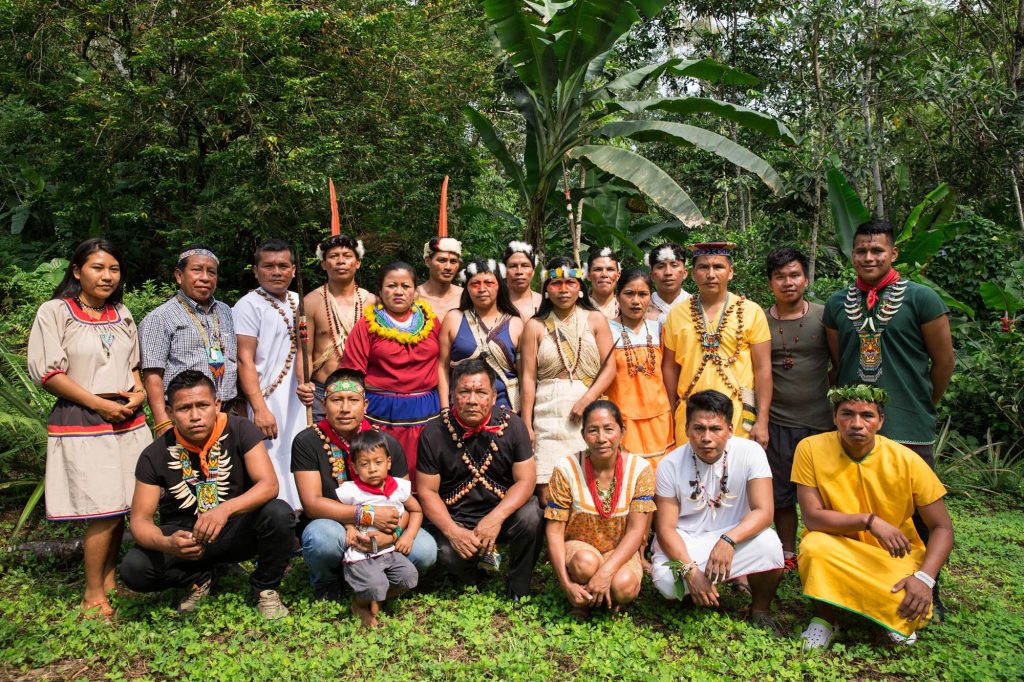
Around the world, Indigenous and environmental rights have increasingly been under attack. Last year alone, 146 environmental defenders were killed or disappeared, and one-third of them were Indigenous. Still, this year, the United States and President Trump rushed to cut funds for human and environmental rights organizations across the globe and encourage the silencing of Indigenous histories and voices at home and abroad.
Latin America is facing an equally powerful rightward, populist march. Daniel Ortega and Rosario Murillo have targeted and destroyed civil society organizations, social movements, entire universities, and the independent press in Nicaragua. Nayib Bukele has gone after human rights organizations, media outlets, and journalists in El Salvador. In Peru, Dina Boluarte has used legal actions to silence and restrict human rights organizations.
The fact that Ecuador joined the pack is not so much a shock as the way in which the country’s president, Daniel Noboa, did it: By passing series of regressive laws and executive orders in his first months in office, leading a march against the Constitutional Court, cutting subsidies on diesel for citizens who need them most, and calling a referendum to rewrite Ecuador’s Constitution. It was a violent about-face for a country that, for years, had worked to become an international leader in environmental and Indigenous rights.
The freezing of Ceibo Alliance’s account is a harbinger of the next phase of this rollback of rights, and it is just one example of many targeted financial attacks across Ecuador. As of this writing, dozens of human rights defenders, Indigenous leaders, and organizations have also seen their accounts frozen.
The Ceibo Alliance has come together in solidarity to weather this moment, and despite evasiveness from the courts, its legal team has officially initiated a legal defense against the blocking of the Alliance’s accounts. Today, on November 5, a hearing on this matter will be held.
So, what, exactly, is the government afraid of?
Our colleagues at Ceibo Alliance had some theories:
“They poisoned our rivers with heavy metals and toxins, and so we’ve built thousands of rainwater catchment systems across our villages. And now they freeze our bank account! I don’t understand. Do they want us to be sick?”
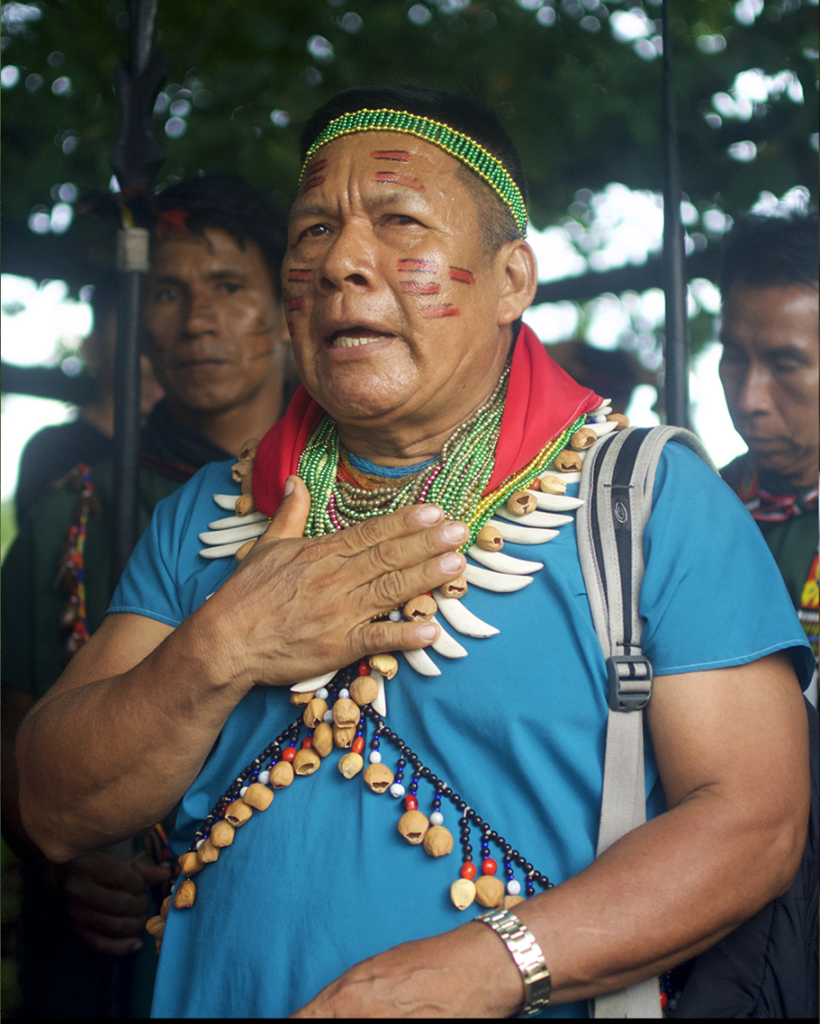
Emergildo Criollo, Kofan leader, who lost two children to oil contamination and has dedicated his life to bringing clean water to his people.
“I think they want us to forget who we are. They don’t want our children to learn from the forest, from our elders. That’s why they’re messing with our bank account to try to stop us from building our own educational system.”
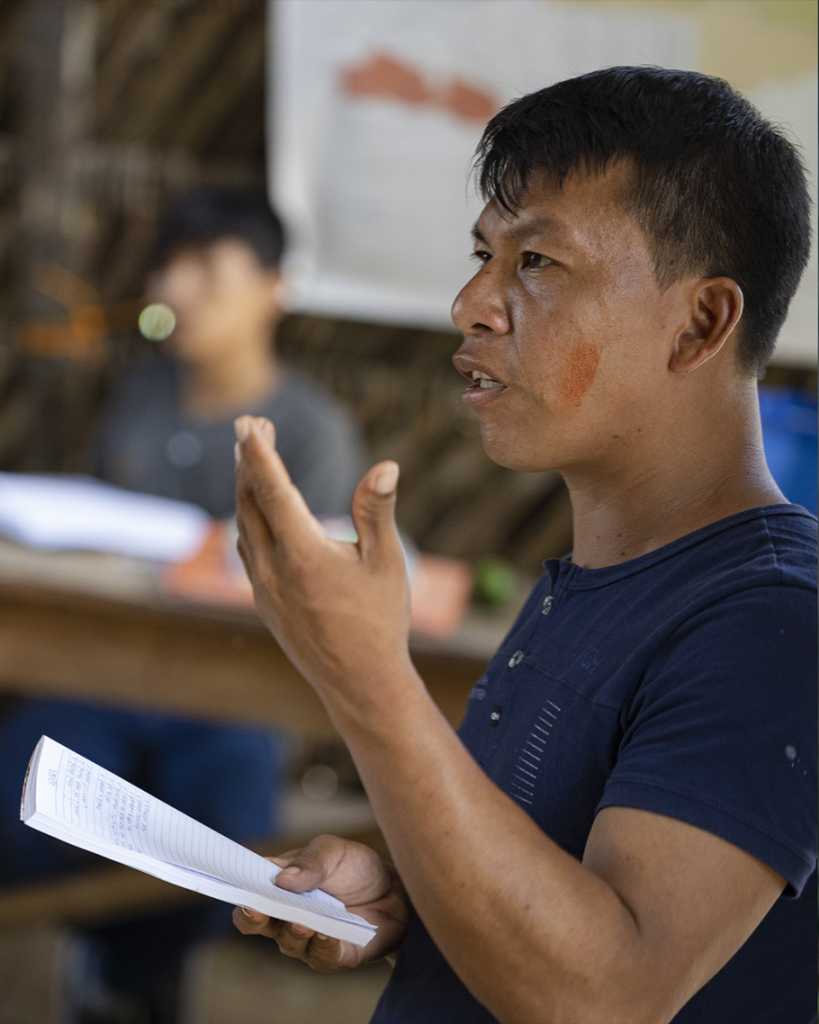
Gaba Guiquita, Waorani education leader
“We are the reason that our forests are still standing. They are afraid of the forest. They want to turn the Amazon into oil fields and mining pits and African palm plantations.”
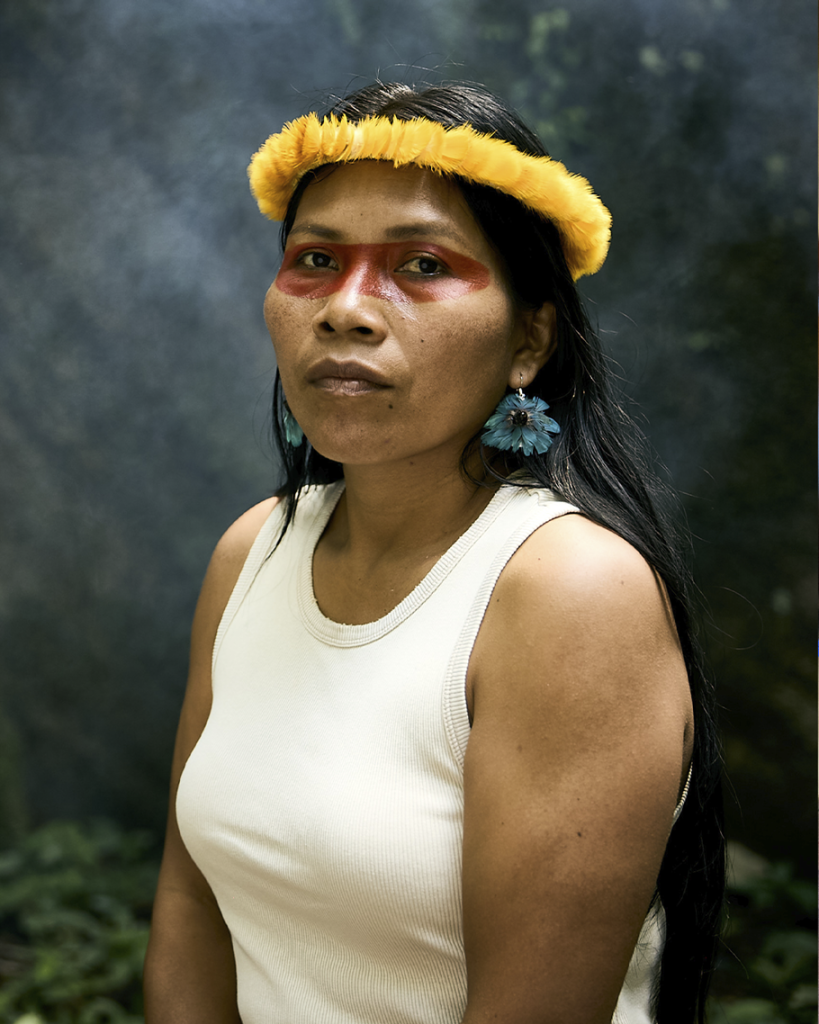
Nemonte Nenquimo, Co-founder of the Ceibo Alliance & Amazon Frontlines
“We are good storytellers, and we have very powerful stories. That’s what they don’t like. They don’t want us to tell our stories to the world because our stories contain their violence against us. That’s why they’re attacking us and blocking our bank accounts.”
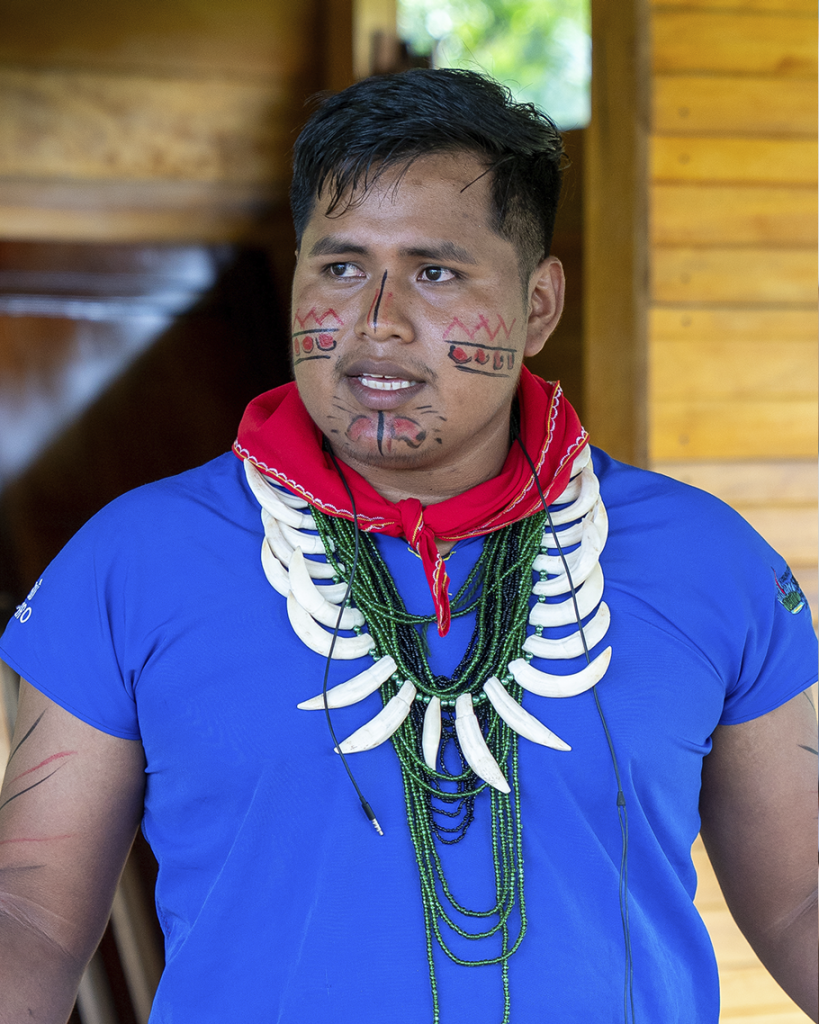
Nixon Andy – Ceibo Alliance Alianza Ceibo communicator
“I think the government is scared because we’ve learned how to use money as a tool for the collective well-being of our people – and so that’s why they are freezing our accounts.”
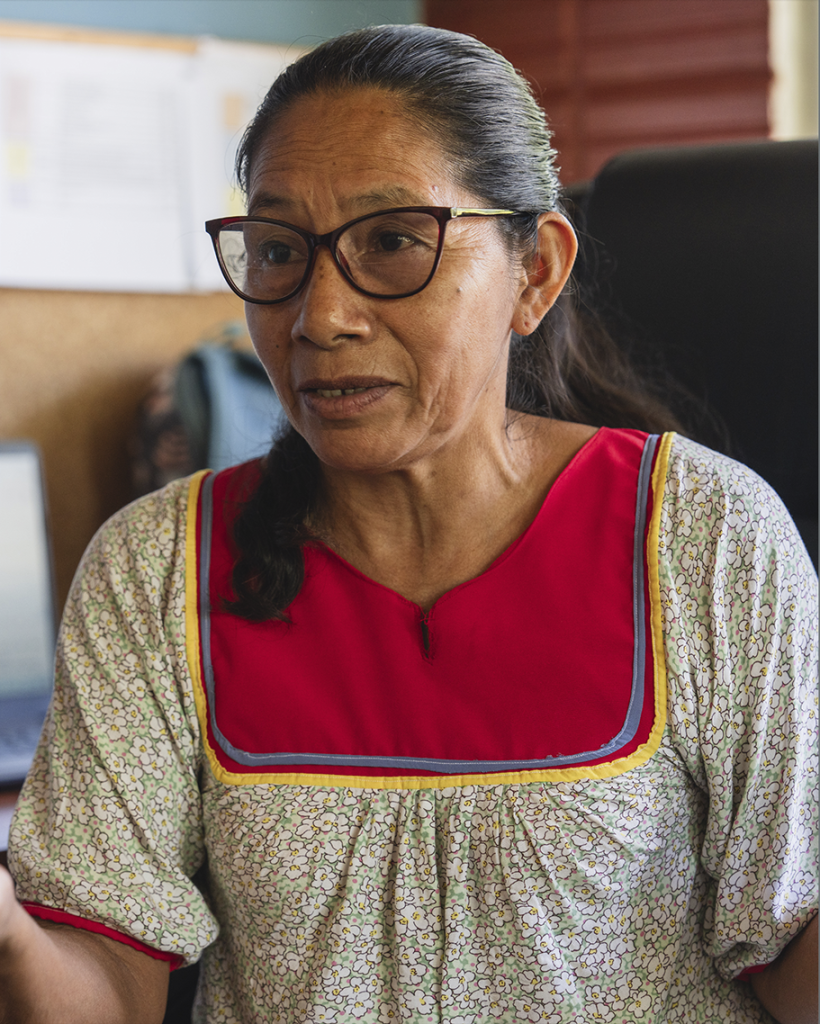
Alicia Salazar, Siona Leader, and member of the Ceibo Alliance Leadership Council
Photos: Sophie Pinchetti, Mateo Barriga, Christopher Fragapane, Michelle Gachet and Alejandro Jaramillo.




